
We kindly inform you that, as long as the subject affiliation of our 300.000+ articles is in progress, you might get unsufficient or no results on your third level or second level search. In this case, please broaden your search criteria.



Victor Emmanuel III reigned for a long time, for 46 years (1900–1946), all the same the international historical litterature hardly deals with him, his name is only mentioned in the publications. Even the Italian his-torians have not written much about him. In the first trimester of the 20th century he was praised by the majority of the publications. But from the last third of the thirties the critical tone intensified with him because he legitimized Mussolini's increasingly aggressive foreign policy. And though he dismissed Mussolini in 1943, but the critical tone on him did not chan-ge. After 1945 he just saw the events. The referendum in 1946 decided the fate of the monarchy and the king.
More...
Prvi svetski rat proizveo je kod nas niz tumačenja koja su omogućila ljudima da shvate te džinovske događaje, koji prevazilaze svakog, čiji su nosioci ljudi, iako ih oni nadmašuju - te, na izvestan način, kosmičke događaje. Trudili smo se da ih smestimo u svoje kategorije, da izađemo na kraj s njima, onako kako smo ih spoznali, tj. u biti, na osnovu misli XIX veka. Drugi svetski rat nije izazvao ništa slično; njegovi neposredni uzroci, njegov izgled, bili su možda odviše jasni, a, pre svega - nije se završio, prešao je u nešto posebno, što nije ni rat ni mir; revolucija, koja bi to stanje komentarisala, nije dopustila nikome da dođe do daha i izgovori reč koja bi »svaku stvar podelila na osnovu njene suštine, rekavši kako stvari stoje«. Osim toga, kod nas je stvoreno uverenje da mora postojati nekakvo pravo, tj. marksističko tumačenje Drugog svetskog rata, nešto skriveno u idejnim riznicama strane koja pokreće istoriju. Kasnije nikom ne smeta što takvo tumačenje realno ne postoji...
More...
Iz Bolje-le-Fontena, u departmanu Uaz, gde je 14. avgusta 1917. upravo završio svoj Milieu mistique otac Tijar piše svojoj rodaci: Osećam neko zadovoljstvo što sam sada slobodan da otpočnem, ako mi se ukaže prilika, neku novu temu. U istom pismu on još kaže: Kao uvek posle dugog odmora osećam da me obuzima nostalgija za frontom (Genese d'une penste, str. 260 i 261). To će upravo biti tema mog novog spisa.
More...
Postoji široko prihvaćeno mišljenje da su kontrola i uzdržavanje strani samoj prirodi rata. O tome govori Klauzevic u uvodnom delu studije O ratu - »Rat je«, piše on, »čin sile kojim primoravamo neprijatelja da prihvati našu volju… Silu prate i neka samonametnuta, jedva primetna ograničenja, poznata kao međunarodno pravo i običaji, ali njima je sila tek neznatno oslabljena... Uvođenje načela umerenosti u teoriju rata nužno vodi u logički apsurd«.
More...
Koliko mislilac može da pogreši a da još uvek polaže pravo da ga tretiramo sa dužnom pažnjom? Da bi se to proverilo, koristan je slučaj Žana Bodrijara (Jean Baudrillard), kultne figure današnje postmoderne scene, ličnosti koja je iznela neke od najluđih ideja koje su se do sada mogle čuti među kreatorima francuske intelektualne mode.
More...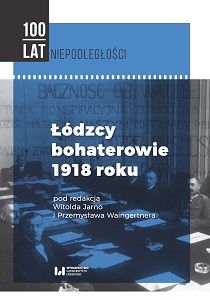
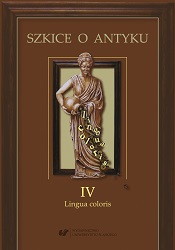
This article presents chosen passages from Roman literature, in which color epithets are collocated with nouns such as e.g.: gladius, flagellum, arcus or hasta. The aim of the text is to outline variety of the mentioned collocations as well as to describe their functions and explain interpretative problems with reference to historical and traditional context. The main emphasis is put on a conviction that color in literature let a reader construe (through senses) world and visions created by authors. It is possible to highlight personal characteristic thanks to vivid depictions and metaphors. Furthermore, color itself can lead into space of surprising solutions, noteworthy ideas and unusual descriptions, which have an impact of readers’ imagination.
More...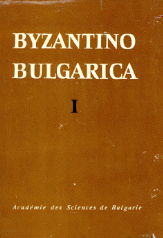


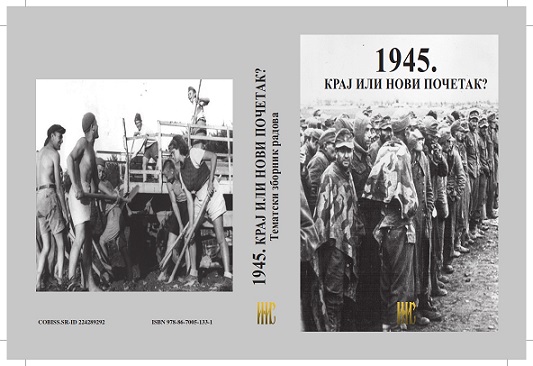
Temporary and partial realization of the Albanian national project took place during WWII when Albanian-inhabited Yugoslav territories were united with Albania under Italian auspices. This spurred a large number of Kosovo and Macedonian Albanians to side with the Axis Powers and to try to oppose the reestablishment of the pre-war order at the time these powers faced defeat. Their inclusion into the war effort started with liberation of Albanian-inhabited Kosovo and the Metohija, Western Macedonia and parts of Montenegro. This provoked passive and active resistance. Passive resistance took the form of evasion of military service and desertions, whereas the active one meant overt rebellion. Since a large number of Albanians had been included in some forms of military organization serving the occupiers and since large quantities of weapons were in the hands of the people and because the local Yugoslav authorities encouraged resistance by their actions, the Drenica rebellion flared up. The intensity and scope of the Albanian armed rebellion were a serious challenge to the Yugoslav leadership who was forced to redirect a certain number of military units to Kosovo from other fronts - particularly from the Syrmium-Front where decisive battles were in progress. The situation in 1945 was almost identical to the one in early 1920s as the power of the Kingdom of the Serbs, Croats and Slovenes had been established at the end of WWI. In 1945 the intensive armed clashes were followed by de-escalation and switching to individual actions and guerilla warfare, but also by transformation in the form of a political action.
More...
The entry of the Yugoslav Army troops into Trieste on May 1, 1945 escalated the crisis in the relations between Yugoslavia and Western Allies. The bone of contention was the status of the territory of Venezia Giulia and the city of Trieste. The Yugoslav government justified its territorial aspirations by the fact that the region was Slavic-inhabited. Especially powerful argument was the Anti-Fascist Councils that had been set up in the area. On the other hand, the British and the American governments strove by agreement and through military occupation to create the possibility for annexation of Venezia Giulia to Italy after the peace treaty. During the solving of the crisis in May and June 1945 the British and the American governments kept in mind the possible reaction of the Soviet government - which ushered into the first serious misunderstandings within the Anti-Fascist coalition. The difficult matters of Venezia Giulia’s status and of control of the Trieste harbor were the topics of military expert talks, but lack of consensus threatened to lead to an armed conflict between the Yugoslav and the Allied forces. However, the armed attack on the Yugoslav units was discussed only as a matter of principle. The Allied commander in the Mediterranean, filed-marshal Alexander, warned the British government that the Allied soldiers could protest at having to fight the Yugoslav forces. Apart from the reasons of morale and reluctance to fight the recent ally, the British and the American governments also discussed strategic reasons in favor of refraining from war with Yugoslavia. The assumption that the Soviet government would react to an attack on the Yugoslav forces, led to a diplomatic solution in the form of the Belgrade and the Devin agreements. The stipulations of the latter were in force until the Peace Treaty with Italy went into force. The Yugoslav government didn’t fulfill its territorial ambitions, but the pacification of the crisis enabled it to pursue the diplomatic struggle to define the North-Western borders of Yugoslavia.
More...
"Bleiburg” and the "Passion" are one of the complex topics of Croatian, Slovenian, Serbian, Bosnian and Herzegovinian and Montenegrin historiographies. It had been passed in silence for a number of years, not only in historiography, but also in public life of Croatia and former Yugoslavia. Despite public silence in Yugoslavia, there were writings about "Bleiburg" mostly in Croatian, Slovenian and Serbian emigre circles. Since 1990s "Bleiburg" and the "Passion" were no longer a taboo, so that ample historiographical, publicist and memoir literature deals with the end of WWII, withdrawal of a large number of soldiers and civilians, negotiations and extradition at Bleiburg, as well as the events during the "Passion". Works of Yugoslav (socialist) historiography, as well as of foreign (German, British) historiographies are interesting for a general review. Most data are known through memoirs and statements of survivors of the Bleiburg events. However, one should keep in mind frequent subjective elements in the available narratives. Therefore the goal of this paper is to systematize, review and evaluate the more important texts, articles, collections and monographs on the Bleiburg events from May 1945.
More...
This article highlights ways in which British military and political personnel acted towards Croatian refugees fleeing the Communist takeover in the final stages of World War II and thereafter. Although events relating to the surrender o f various pro-German and anti-Communist forces at Bleiburg, a town in south Austria near the border with Yugoslavia, and the following quarrel over "war criminals" from Yugoslavia is a complex affair, this contribution examines sources shedding light on British perspectives on the Croatian part, notwithstanding that the developments and problems treated here also affected Serbian, Slovenian and (ethnic) German nationals. As a result of this study, the changes in the intentions of the decision makers in London as well as the principal-agent problem become transparent.
More...
During the last military operations of WWII some 70,000 members of various Yugoslav collaborationist forces and their families surrendered to the British and American authorities. At first they were allotted the status of “surrendered enemy personal” and later on of “displaced persons” under temporary care of international humanitarian organizations and the British Army and the Screening Commission. The new Yugoslav authorities demanded extradition of almost all Yugoslav citizens under control of the Allied military authorities. As a matter of fact, the number of real war criminals among the DPs (especially among the ustasha, members of the Zbor of Dimitrije Ljotić, Slovenian collaborationists, but also among the chetniks and Croatian home guards) whose guilt could easily be proven, was considerable. However, the way the new Yugoslav regime dealt with both collaborationists and war criminals and with other political and ideological enemies, went beyond the stipulations of the rule of law and of law of nations. Together with the increasing Cold War tensions, this contributed significantly to the siding of the larger part of the public and most political forces of the Western countries with the people who pleaded respect for the law of nations and for basic human rights, demanding protection from forcible repatriation. Conservative political forces and media, as well as various religious organizations strove to depict the collaborationists of yesterday as anticommunists and model Christians, whereas the disproportionate oppression of the new Yugoslav regime during the first months and years after the war provided them with enough material to argue before the world public that no-one extradited to Tito could hope to have a fair trial in Yugoslavia. American and British diplomatic reports confirmed this, so the question of extradition of DPs became, together with the question of Trieste, the main bone of contention in the relations between Tito and Yugoslavia with their former wartime allies. Desirous of solving this unpleasant question as soon as possible, but also of convincing Tito in their good intentions, the British authorities entrusted brigadier Fitzroy McLean with screening Yugoslav collaborationist refugees. After more than a year of work his commission decided that out of several thousand people, some forty were to be extradited: the Cold War atmosphere, infringements of human rights in the socialist Yugoslavia, but also fatigue and pressure of the British public opinion to get the affair off the agenda enabled many collaborationists whose guilt was indisputable, to avoid trial and to acquire permanent status of (political) refugees. Since 1947, as most of the emigre Serbian collaborationists had acquired refugee status, a new phase in the life of the Serbian emigration started. At prodding of Jakov Ljotić, the leader of the Zbor movement, most of his adherents applied for work and stay in Great Britain, from where certain groups moved to the USA, Canada and Australia. Former members of the chetnik units usually settled down in England and in the USA, although some chetniks and members of the Zbor preferred to stay in Western Germany and start a new life there. Although research has so far shown that the Serbian (and Yugoslav) emigration was disunited and often prey to internal strife, it was unquestionably united in an anti-communist front. It comprised a permanent public campaign against Tito and the Yugoslav authorities, diplomatic intriguing aimed at destabilizing the regime in Yugoslavia, and in several cases even terrorist actions. For these reasons the emigrants were often targeted by Yugoslav intelligence and security services and their conflict with these services lasted to all intents until late 1980s and the bloody break-up of Yugoslavia that ensued.
More...
The Allied Military Government in the Zone A of Venezia Giulia that existed between mid-June 1945 and mid-September 1947 was an occupation formation of the Allied army whose primary aim was to stop the Yugoslav military and political penetration (and annexation) in the territories that formally had belonged to the Kingdom of Italy but that were earmarked to be united with their mother countries (Slovenia and Croatia) in political documents of the Partisan movement, so as to prevent the Peace Conference from facing a fait accompli. Another, no less important goal was social and economic. The Allied Military Government was to prevent the humanitarian catastrophe and to restore the economy at least to some degree and enable it to provide for the population. To be sure, it was also necessary to prevent anarchy and lawlessness immediately after the war. It is questionable to what degree it succeeded in performing these tasks. It did manage to prevent the more violent consequences of political frictions, but not the process of mass emigration, primarily of Italian town population, as well as the change of the town’s geo-political status. The fact that the Allied Military Government was the butt of criticism of both the pro-Yugoslav and the pro-Italian political forces, testifies that it strove to do its job in good faith, to stay neutral and abide by the agreements that had been signed as much as it was possible with regard to the conflict-laden political situation among the former allies.
More...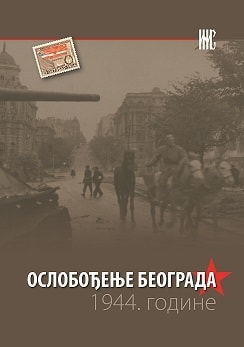
At the end of WWI as the Kingdom of Serbs, Croats and Slovenes and the Kingdom of Romania were founded, some 40.000 Serbs became the Serbian national minority in Romania. They were compactly settled in the border regions, partly in the Banat and partly in the Banatska Klisura, alongside the left bank of the Danube. During the inter-war period the situation of the Serbian minority wasn’t particularly good and it deteriorated during WWII and the Fascist regime of marshal Antonescu when Serbs deserted en masse from the Romanian army, not wishing to fight against „Russia”, even though it might be Communist. Almost 1.000 people, partly deserters from the Romanian army, crossed over to Yugoslavia in the last phase of the war, and joined Tito’s partisans with whom they took part in battles against Germans. After they had returned to their villages they became advocates of the idea of unification with Yugoslavia. The appearance of the Red Army on the Romanian bank of the Danube where Serbs lived in compact communities additionally strengthened that idea among the local Serbs. The participation of some Soviet officers and soldiers in the revengeful actions of Serbs and their detraction of the authority of the Romanian government, although probably isolated cases, helped the conviction to spring up among part of the minority population that they would enjoy Soviet support for such a step, the Soviets being the masters of the situation in Romania. The liberation of Belgrade and the organization of the new Yugoslav government were the signal for the beginning of the propaganda action in which some Red Army soldiers also took part and which would eventually provoke the armed counter-action of the Romanian authorities. However, the attempt to organize the Antifascist Front of Slavs (SAF) in early May 1945 showed that the attitude of the Yugoslav and Soviet authorities had changed in the meantime – most probably during the visit of Josip Broz Tito to Moscow between April 5 and 17, and in connection with the founding of the government of Dr Petru Grozda in Romania to which USSR guaranteed territorial integrity. Although the congress didn’t take place and although it foresaw no action in connection with unification of the Romanian part of the Banat with Yugoslavia, the bill for toying with this idea was footed by Serbs in Romania at the time of conflict with the Informbuerau. They were subjected to mass deportations to the deserts of Baragan, as a kind of revenge by the Romanian authorities.
More...
The paper gives a survey of the activities of the Soviet Intelligence Service based on the data reached by the Yugoslav Counter-Espionage in its researches after the conflict between Yugoslavia and USSSR in 1948. It is pointed out that these activities were channeled through several forms of cooperation: through military missions sent to the Yugoslav partisans in 1944, through special NKVD and SMERS groups which came to Belgrade after the arrival of the Soviet and partisan forces on October 1944, through units set up among the Yugoslavs which were sent to Yugoslavia, as well as through a number of advisors sent to the Yugoslav Army after the end of the war and finally through broad plans of education courses in USSR attended by members of the Yugoslav Army between 1944 and 1948. What can be gleaned from these analyses is that a precise number of Soviet advisors and other representatives between 1944 and 1948 couldn’t be established, as well as that of the members of the Yugoslav Army (YA) who were educated in USSR. The main question within the YA after the Resolution of the Informbuerau was boiled down to ideological and political declaration concerning the views expressed in the Resolution. These views of the YA members were basically the most important thing to the political and counter-espionage agencies. Thus, the analysis of the activities of the Soviet intelligence service in Yugoslavia 1944–1948 and the depth of its penetration into the Yugoslav establishment was neglected for a long time.
More...